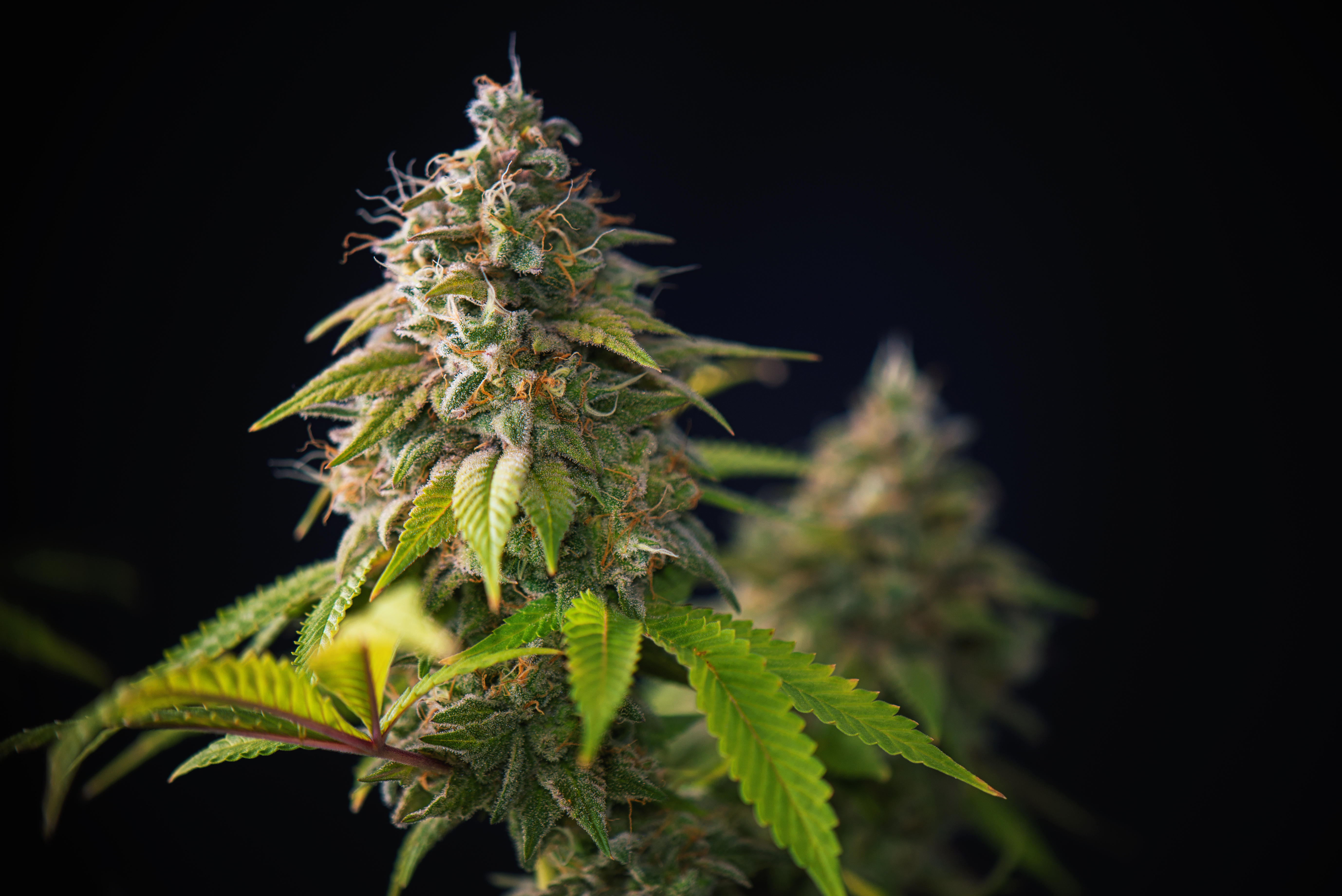Will cannabis now be legal in Germany? German parliament passes new Cannabis Act
Published on 23rd February 2024
Cannabis legalisation for recreational use in Germany is coming – however only as a limited partial decriminalisation for now.

After long political debates, the German parliament passed the new “Act on the Controlled Use of Cannabis” on 23 February 2024. From April 1 2024 on, adults over the age of 18 shall be allowed to possess and cultivate cannabis for personal use within certain limits. From July 2024 on, communal cultivation in non-commercial “cannabis clubs” shall be possible, from which members shall be allowed to obtain limited quantities. Commercial trade with cannabis however remains prohibited in Germany for the time being.
The law falls short of the original far-reaching promise of the current government’s coalition agreement, which provided for comprehensive legalisation and controlled distribution in licensed specialist shops. Nevertheless, the "legalisation light" that has now been passed is a historic turnaround in Germany’s cannabis policy.
How has cannabis legalisation in Germany progressed so far?
The legalisation of cannabis for recreational purposes in Germany is one of the most controversial promises made by the current government. The project and a corresponding law have been discussed for years and drafts fundamentally revised with some people no longer believing that the planned legalisation would become a reality.
Back in October 2022, Karl Lauterbach, the federal health minister of health, presented an initial key points paper with a legal framework for the planned legalisation. However, this paper was widely criticised due to conflicting regulations under international and European law.
In April 2023, a second key point paper followed, which already deviated considerably from the course of the first paper and a comprehensive legalisation and instead envisaged the gradual implementation of cannabis legalisation by way of a “two-pillar model”: In a first step, the possession and cultivation of small quantities of cannabis for private purposes shall be decriminalised (first pillar) and in a second step, commercial distribution shall be tested in regionally limited and state-controlled pilot projects (second pillar).
The new Cannabis Act has implemented the first pillar of the legalisation plan. It is designed as a comprehensive framework law and contains not only regulations on the controlled possession, cultivation and consumption of cannabis for recreational purposes but also further amendments to existing laws in connection with the decriminalisation, such as amendments to the German Narcotics Act and the German Criminal Code.
What are the specific regulations of the new Cannabis Act?
- Cannabis will be removed from the list of prohibited substances in the German Narcotics Act, where it was previously subject to corresponding penal provisions.
- From April 1 2024 on, adults over the age of 18 years will be permitted to possess up to 25 grams of dried cannabis for personal use in public places and up to 50 grams of dried cannabis at their place of residence or habitual abode.
- The private cultivation of up to three cannabis plants for personal use is permitted, but requires strict protection from access by children, young people and third parties. Cannabis from private home cultivation may not be passed on to third parties.
- Non-commercial communal cultivation for personal consumption in cultivation associations, so-called "cannabis clubs", is also permitted. However, consumption is not permitted in and or “within sight” of these clubs.
- The public consumption of cannabis in and "within sight" of schools, facilities for children and young people, playgrounds and publicly accessible sports facilities as well as in pedestrian zones between 7 am and 8 pm is prohibited. The distance of “sight” shall no longer be given at a distance of more than 100 metres from the entrance area of the respective facility.
- The consumption of cannabis in the immediate presence of persons who have not yet reached the age of 18 is prohibited.
- Non-commercial cultivation associations ("cannabis clubs") may only grow cannabis with official authorisation and only dispense it to their members for their own personal use. Strict legal requirements must be met under the supervision of the authorities.
- Cannabis clubs are limited to a maximum of 500 adult members who are resident or ordinarily resident in Germany. Membership in more than one cannabis club is prohibited.
- The quantity dispensed in cannabis clubs is limited to a maximum of 25 grams per day / 50 grams per month per member and is only permitted subject to strict verification of membership and age. The supply to young adults (adolescents) aged 18-21 years is limited to 30 grams per month and a THC (delta-9-tetrahydrocannabinol) content of 10 percent.
- Cannabis is dispensed in controlled quality and only in pure form, that is marijuana or hashish. Dispensing in combination with alcohol, tobacco, food or other flavourings and additives is prohibited.
- Advertising and any form of sponsorship for cannabis and for cannabis clubs are prohibited.
- An adjustment of the THC limits in road traffic law is currently being examined by the Federal Ministry of Transport and Digital Affairs and a corresponding proposal is expected by 31 March 2024.
- Prevention measures are planned by the Federal Centre for Health Education and cannabis clubs. Besides, early intervention programmes are to be provided, especially for young adults who violate the aforementioned regulations.
- Old criminal convictions for possession or cultivation of cannabis, which would no longer be punishable under the new law, can be deleted from the Federal Central Criminal Register on application.
- In addition to the above regulations regarding cannabis for recreational use, the new Cannabis Act also contains new regulations on access to medicinal cannabis, which are regulated in a separate Medical Cannabis Act.
Decriminalisation: what is now permitted?
With the provisions of the new Cannabis Act, only a partial legalisation in the form of a limited decriminalisation has been decided. For adults, cultivation and possession of cannabis for personal consumption is now exempt from punishment in certain quantities but trafficking in cannabis for recreational use still remains illegal in Germany. Slight exceedances of the legal possession limits constitute an administrative offence; higher exceedances (more than 30 grams in public spaces or 60 grams in private spaces) constitute a criminal offence.
Trading and placing on the market without a licence, regardless of the quantity, as well as the acquisition, possession and cultivation above the permitted quantities will thus remain prohibited and may be imposed with fines, financial penalties or imprisonment. In particular, the supply of cannabis to children and adolescents is to be prosecuted and penalised even more consistently in future.
The controlled distribution of cannabis via non-commercial cannabis clubs to their members is intended to curb the black market. These associations may charge members only with fees to cover their own costs and are not allowed to make any profits from the distribution.
The government’s original plan for state-controlled sales in licensed specialty shops was postponed for EU legal reasons. This is to be tested in future in regional pilot projects of pillar two.
Limited but historic legislation?
With the partial legalisation or limited decriminalisation provided for in the new Cannabis Act, the German government has clearly deviated from its original approach of a comprehensive legalisation, as envisaged in the government’s coalition agreement. However, even if the agreed "legalisation light" is now less comprehensive than planned, it still constitutes a historic turnaround in cannabis policy in Germany.
The changes from the original vision and the slow progress of legalisation, which was originally planned for 1 January 2023, demonstrates how controversial this topic is in political debate and how complex the challenges are that the federal government faced with the ambitious goal of reorganising German drug policy and reconciling the desire to legalise cannabis with the concerns of its critics.
But even after the law was passed, criticism remains loud on both sides. For supporters, the legalisation does not go far enough, as trade and commercial sales via licensed specialist shops, as originally envisaged, are not initially permitted. This prevents a new branch of economy and the associated investments and potential tax revenue.
For critics, however, legalisation still goes too far. In particular, they believe that the protection of children and adolescents is jeopardised, especially as they expect the authorities to be overburdened by the controls of the new regulations. They also believe that the black market is not being effectively combated.
Osborne Clarke comment
It remains to be seen whether the balancing act between liberalisation and combating the black market on the one hand and the protection of children and adolescents on the other will be successful.
The new Cannabis Act is scheduled to come into force on 1 April 2024. From this date, personal cultivation and possession of certain quantities of cannabis will be permitted for adults. Joint cultivation and distribution via cultivation associations shall then be possible from 1 July 2024 on, once the corresponding organisational and official requirements have been created in the federal states.
To finalise the legislative process, however, the new Cannabis Act still has to formally pass the Federal Council although it does not require its approval. However, the Federal Council could request to refer the matter to a Mediation Committee at their meeting scheduled for 22 March 2024. Individual federal states have already expressed their intention to do so.
In case of a referral to the Mediation Committee, the legislative project would be delayed even further. In this case, it is unlikely that the law will come into force as planned on 1 April 2024.
The future of cannabis legalisation in Germany therefore remains a shaky ride. Not only does the question remain as to what impact the new cannabis law will have on German society and the legal landscape. In view of the recent political debates and changes of direction in the legislative process, the implementation of the second pillar of the two-pillar model – that is, the commercial distribution in regionally limited, state-controlled pilot projects – also remains uncertain.






